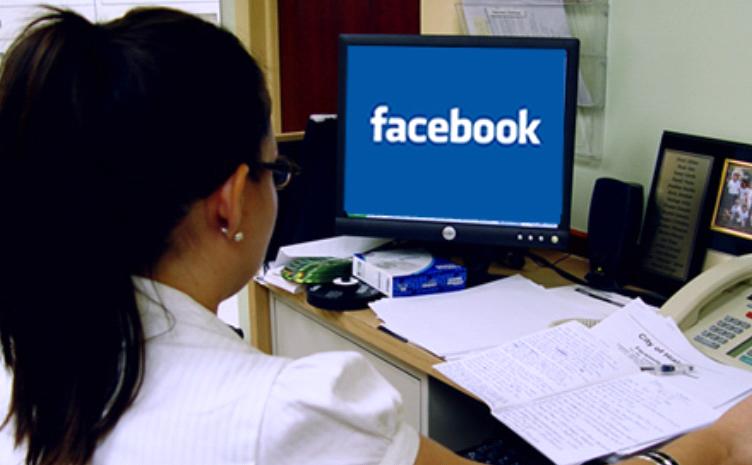It’s no secret that social media is huge part of life, and therefore, work, these days. Platforms like LinkedIn, Facebook, and Twitter offer employees opportunities to network, stay informed, and even collaborate. That said, those same platforms can blur the lines between personal and professional use of social media. This creates challenges, including productivity issues, legal risks, and conflicts in the workplace.
Whether you’re an employer setting guidelines or an employee dealing with digital boundaries, recognizing the impact of social media at work can help foster a healthier, more productive work environment.
The Role of Social Media in the Workplace
Social media serves multiple functions in professional environments. According to a Pew Research study, 34% of employees use social media at work to take mental breaks, while 24% use it for professional networking. Others rely on it for research, industry updates, or to communicate with colleagues.
For example, a marketing professional might use LinkedIn to connect with industry leaders or research competitors, making it a useful tool for their job. On the other hand, an employee checking Instagram during work hours can reduce productivity and focus on the tasks at hand. This is why having a workplace social media policy is important: to maintain professionalism and encourage responsible digital behavior.
Common Pitfalls and Risks of Using Social Media at Work
While social media offers benefits, it also comes with pitfalls that can affect employees and organizations. Recognizing these risks can help prevent workplace issues.
Productivity Losses
Excessive time spent on social media during work hours can disrupt focus and reduce efficiency. Even quick “check-ins” can lead to prolonged distractions. For instance, an employee scrolling through TikTok might intend to spend just a minute but loses track of time, impacting project deadlines.
Confidentiality Breaches
Employees may share sensitive information, such as client data or company strategies, by accident. For example, an employee posting a photo from a company event might reveal confidential documents in the background. This can violate confidentiality agreements, leading to legal action or financial loss.
Reputational Damage
Employees’ online activity can reflect on their employer. A careless post can harm a company’s image, especially if the employee’s association with the organization is publicly known. Negative comments about a client or competitor can get out of hand, damaging business relationships and the company’s public perception.
Legal Risks
Employees’ online behavior can have legal implications, particularly when it involves harassment, discrimination, or breaches of employment contracts. Social media posts can even be used as evidence in legal disputes. For example, an employee’s discriminatory comments on Facebook could support claims of a hostile work environment, exposing the company to potential lawsuits.
How Can Employees Avoid the Pitfalls of Social Media at Work?
Employees are responsible for maintaining a professional digital presence. Here are practical ways to avoid common mistakes:
- Understand Your Company’s Policy
Familiarize yourself with your employer’s workplace social media policy. Policies vary—some companies allow limited personal use during breaks, while others have strict restrictions. Ignoring these guidelines could lead to disciplinary action, including warnings or termination. - Think Before You Post
Assume that anything you share could be seen by colleagues, supervisors, or clients. For example, venting about a tough day at work on social media might seem harmless, but if details about a client or project are included, it could breach confidentiality or damage professional relationships. - Keep Work-Related Grievances Offline
If you have concerns about your job, use internal channels to address them rather than airing them on public platforms. Public complaints can damage workplace relationships, harm morale, and may breach company policies. - Separate Personal and Professional Profiles
Consider maintaining distinct accounts for personal and professional use, especially on platforms like LinkedIn and Twitter. This helps manage your digital footprint effectively and maintains the separation between your professional and personal lives. - Avoid Engaging in Sensitive Topics
While employees have the right to express personal views, engaging in political or controversial discussions online can lead to workplace tension. Even off-duty posts can impact professional relationships, so it’s wise to stay professional on all platforms. - Be Mindful of Privacy Settings
Review and update your social media privacy settings on a regular basis to control who can view your content. However, privacy settings are not foolproof—assume that anything posted online could become public.
Key Elements of an Effective Workplace Social Media Policy
A comprehensive workplace social media policy helps set clear expectations for employees while protecting the organization from legal and reputational risks. Key components include:
- Clear Guidelines on Acceptable Use
Define whether employees can access social media during work hours, and if so, under what conditions. Clarify expectations around using social media at work, such as limiting personal use during meetings or client interactions. - Professional Conduct Standards
Outline how employees should represent themselves and the company online. Emphasize the importance of respectful communication and the consequences of inappropriate behavior, including harassment or discriminatory language. - Confidentiality and Data Protection
Prohibit sharing sensitive company information, including trade secrets, financial data, or client details. Highlight the risks of disclosing confidential information, even in casual posts or photos. - Consequences for Policy Violations
Specify disciplinary actions for breaches of the workplace social media policy, which may include warnings, suspension, or termination, depending on the severity of the offense. - Compliance with Employment Laws
Ensure the policy aligns with federal and state laws, including protections under the National Labor Relations Act (NLRA) for discussing workplace conditions. This helps balance company policies with employees’ legal rights.
Social Media at Work FAQs
What is a workplace social media policy?
A workplace social media policy is a set of guidelines that outlines how employees can use social media responsibly, both at work and in relation to their job. It covers acceptable behavior, confidentiality rules, and the consequences of policy violations.
Can employees get fired for social media posts made outside of work?
Yes, employees can face disciplinary action, including termination, for posts made outside of work if the content violates company policies, damages the company’s reputation, or contributes to a hostile work environment.
How can companies manage social media use without violating privacy?
Companies can implement clear policies outlining acceptable use and monitoring practices. Transparency is key—employees should be informed if their social media activity is being monitored, and personal accounts should generally remain private unless legal issues arise.
Balancing the Benefits and Risks of Social Media at Work
In today’s connected world, understanding the role of social media at work isn’t just about avoiding risks—it’s about leveraging its potential for positive impact. By setting clear guidelines and practicing good judgment, employees and employers can create a balanced, productive work environment.
Resources:
https://www.littler.com/publication-press/publication/politics-workplace-and-risks-social-media
https://www.hrmorning.com/articles/social-media-in-the-workplace/
https://www.pewresearch.org/internet/2016/06/22/social-media-and-the-workplace/




